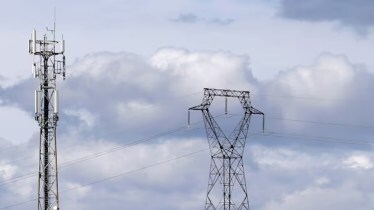The government is considering a proposal to waive outstanding spectrum usage charges (SUC) for telecom operators on airwaves acquired before the 2022 auctions, sources said. If approved, this move could provide telecom operators with a financial relief of around Rs 5,000 crore.
According to sources, Cabinet secretary TV Somanathan is expected to hold a meeting on March 10 with senior officials from the department of telecommunications (DoT) and the ministry of finance to deliberate on the waiver proposals. The potential waiver is significant as the DoT had earlier removed the SUC on all spectrum bought after 2022 auctions. However, telecom firms continue to pay SUC ranging from 1-3% of their adjusted gross revenue for spectrum acquired in previous auctions. Spectrum auctions started 2010 onwards. Prior to that spectrum was given based on subscriber-linked criteria – higher the user base, higher the spectrum, and accordingly the SUC also rose.
Since the government moved to auction-based allocation of spectrum, the operators have been demanding that there’s no rational for continuing with SUC charges. Over the years though the charges have been rationalised. While earlier it went up to 6%, currently it’s flat 1% of the AGR for spectrum bought in auctions, while for the operators who have a mix of administrative and market-priced spectrum, the charge is calculated on weighted average, which works out to around 3%. Operators pay SUC in addition to a licence fee of 8% of their AGR.
According to analysts, if the SUC waiver is approved, it would benefit Reliance Jio and Bharti Airtel by approximately Rs 1,100 crore each, while Vodafone Idea (Vi) could gain around Rs 2,000 crore in relief.
According to them, a spectrum surrender policy, combined with an SUC waiver, would offer substantial benefits to telecom operators.
In addition to the SUC waiver, the Cabinet secretary is also considering a Rs 90,000-crore relief package for telecom operators. This package would involve waiving 50% interest and 100% penalties and interest on penalties, on the AGR dues.
In October 2019, the Supreme Court had backed the government’s view and levied AGR dues on telcos of Rs 1.47 lakh crore. This comprised Rs 92,642 crore of licence fees and spectrum usage charge of Rs 55,054 crore. Around 75% of the dues comprised interest, penalties, and interest on penalties. So far, the telcos have paid around Rs 37,000 crore.
If AGR relief comes, Vodafone Idea and Bharti Airtel would be the key beneficiaries, besides Indus Tower. Analysts said under the proposed relief, the AGR dues for Vodafone Idea are expected to come down by Rs 52,000 crore and for Bharti Airtel by Rs 38,000 crore.
Vodafone Idea’s payment obligations to the government stood at Rs 2.27 lakh crore as of December 31, 2024, which includes deferred payment obligation towards spectrum payable over the years till FY 2044 and AGR (including interest accrued but not due) payable over the years till FY 2031. The company’s AGR liability was at Rs 77,000 crore.
For Airtel, the overall AGR dues are expected to be over Rs 40,000 crore, according to analysts estimates.
Without AGR relief, Vodafone Idea could face a financial crisis in the latter half of FY26 or FY27, when its annual spectrum and AGR payments to the government, estimated at around Rs 40,000 crore per annum, become due.
In 2021, the government had granted a four-year moratorium on AGR and spectrum payments, offering temporary financial relief to telecom firms. However, this moratorium is set to end in FY26.
